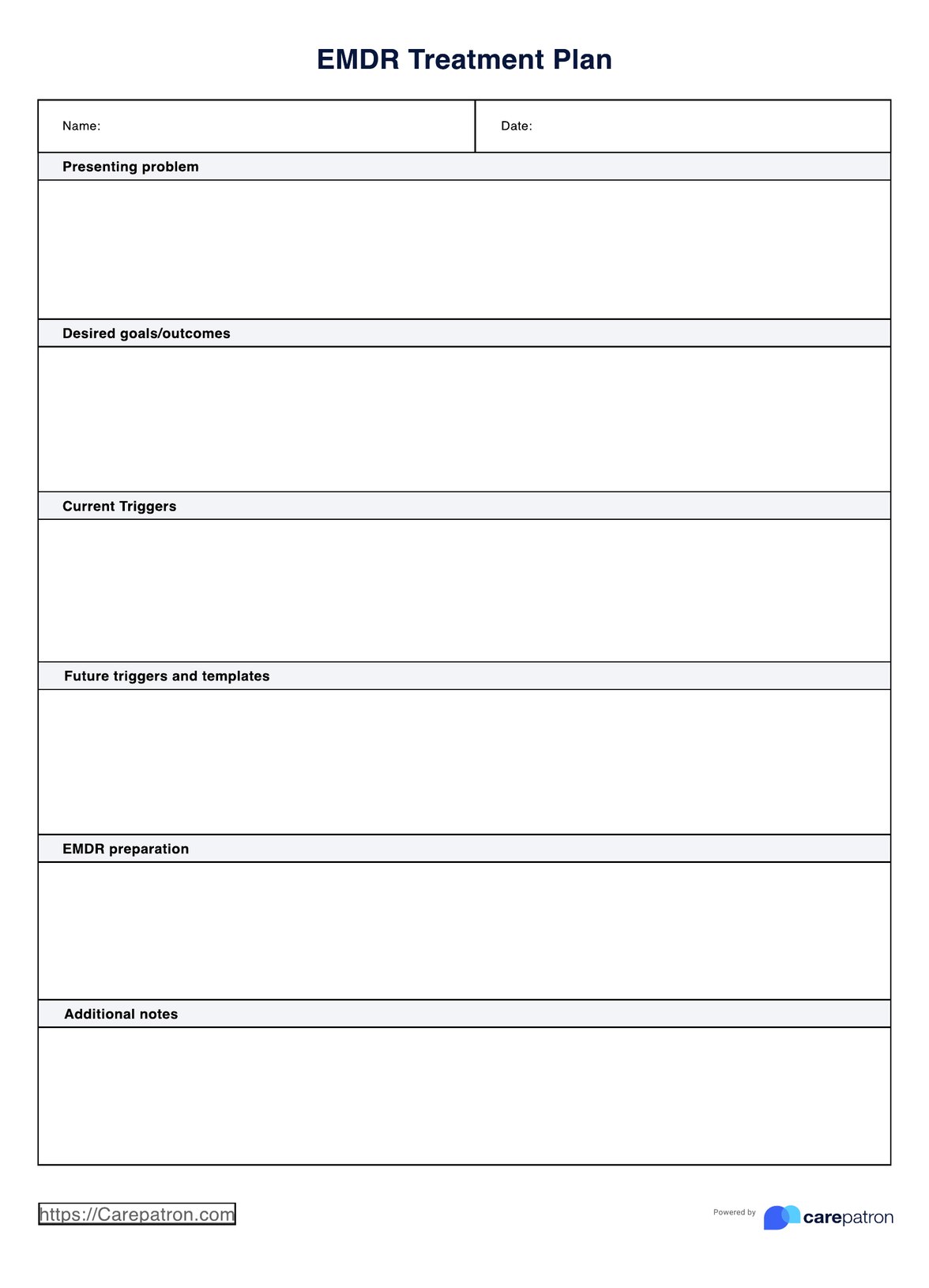Writing an EMDR treatment plan requires considering the patient's needs and goals. Start by gathering a detailed medical history, then create individualized goals and strategies for each patient.

EMDR Treatment Plan
EMDR is one of the most effective treatments for various mental health issues. That’s why having an EMDR treatment plan is so important. Download our free PDF to get started.
Use Template
EMDR Treatment Plan Template
Commonly asked questions
It is essential to individualize an EMDR treatment plan because each patient's needs and goals are unique. By creating a customized plan for each patient, you can ensure their treatment is tailored to their needs.
An EMDR treatment plan is typically accessible to mental health professionals, such as therapists, psychologists, counselors, social workers, and psychiatrists.
EHR and practice management software
Get started for free
*No credit card required
Free
$0/usd
Unlimited clients
Telehealth
1GB of storage
Client portal text
Automated billing and online payments











